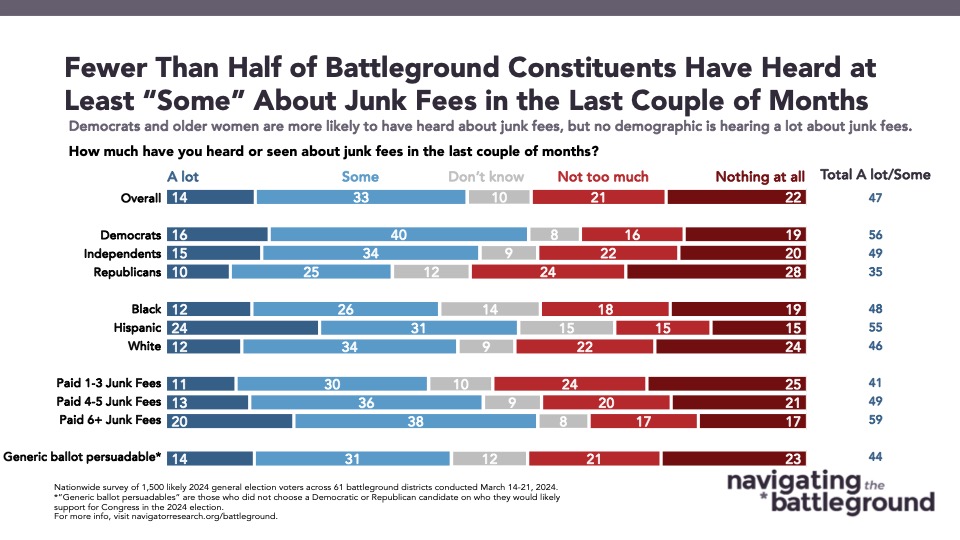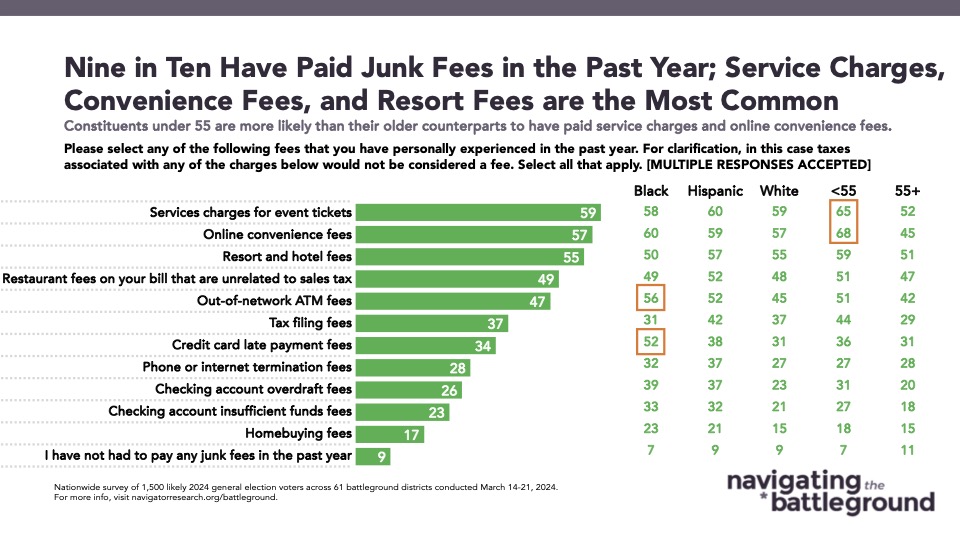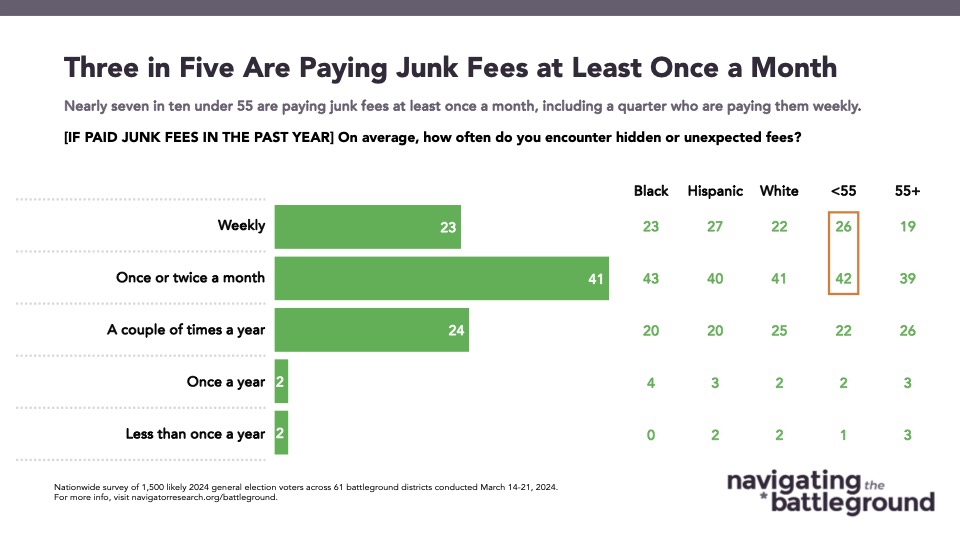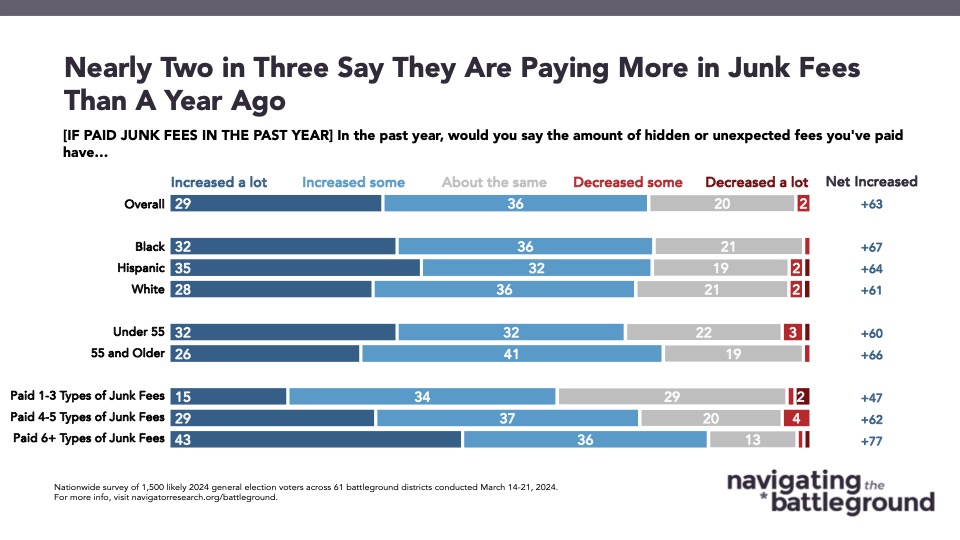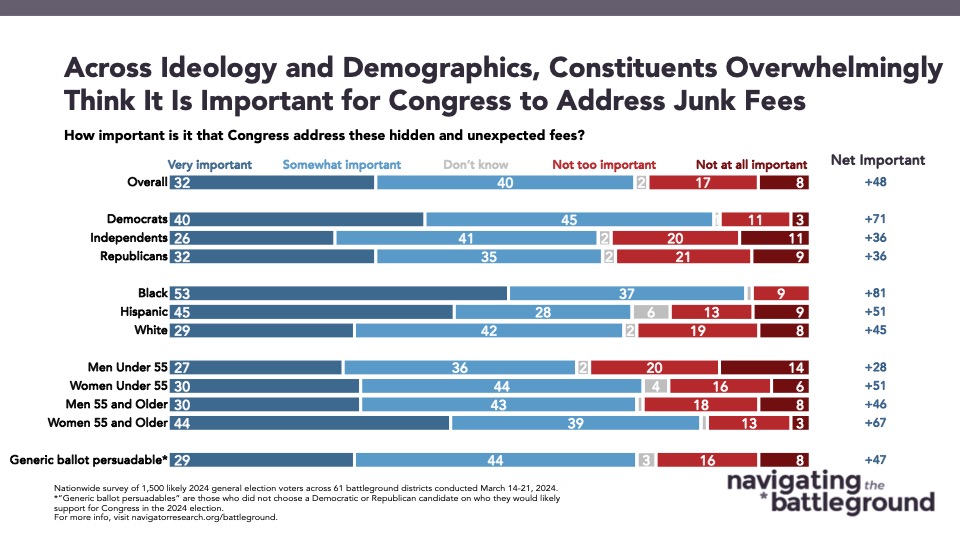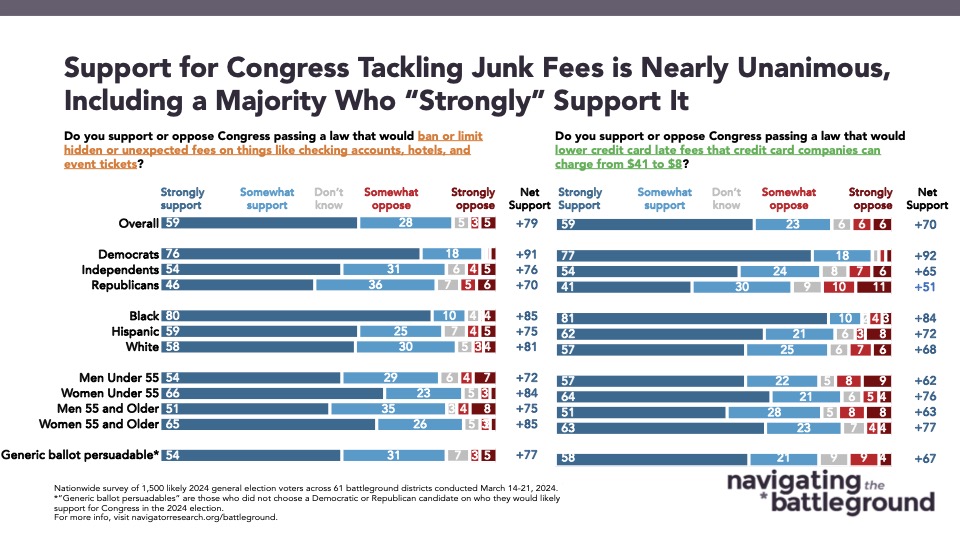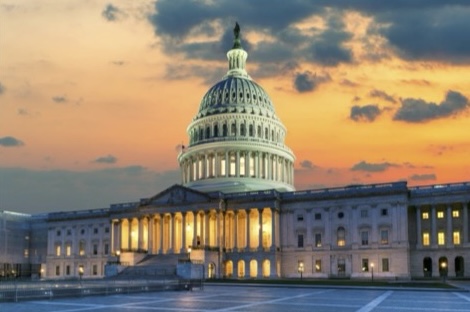Poll: Junk Fees in Battleground Districts
This Navigator Research report contains polling data exploring how constituents in battleground districts experience junk fees, the level of public support for Congress to address hidden and unexpected fees, and support for congressional action banning or limiting these fees. Battleground districts include House districts where constituents are closely divided along conservative and progressive ideological lines.
While awareness of the term “junk fees” is low, nine in ten battleground constituents report experiencing hidden or unexpected fees.
Only 47 percent of battleground constituents have heard at least “some” about junk fees in the last couple of months (14 percent are hearing “a lot” about junk fees), but when asked to detail what hidden or unexpected fees they’ve experienced, battleground constituents are very familiar with specific fees they have encountered, with nine in ten experiencing at least one form of junk fee (91 percent).
- The most common fees experienced were service-related fees, with majorities of battleground constituents reporting receiving service charges for event tickets (59 percent), online convenience fees (57 percent), and resort and hotel fees (55 percent).
- Other common hidden or unexpected fees that battleground Americans have experienced are related directly to their personal financial situation, including credit card late payment fees (34 percent), checking account overdraft fees (26 percent), and checking account insufficient funds fees (23 percent). Battleground constituents of color are even more likely to be impacted by personal financial junk fees than constituents overall in the battleground, including 41 percent who have experienced credit card late payment fees, 37 percent who have paid checking account overdraft fees, and 31 percent who have paid checking account insufficient funds fees.
Nearly two in three battleground constituents who have paid at least one junk fee in the past year experience hidden or unexpected fees on at least a monthly basis.
64 percent of constituents who have experienced paying at least one type of junk fee report encountering them at least once or twice a month, with nearly a quarter saying they experience hidden or unexpected fees weekly (23 percent). Over three in five battleground constituents who have encountered junk fees say the amount of hidden fees they’ve paid in the last year has increased (65 percent) compared to just 2 percent who say they have decreased (20 percent say they have stayed about the same, and an additional 12 percent aren’t sure).
By a 79-point margin, nearly nine in ten battleground constituents support congressional action on junk fees.
Nearly three in four battleground constituents believe that it is important for Congress to address hidden and unexpected fees (73 percent), including 85 percent of Democrats and 67 percent of both independents and Republicans. An even larger share — 87 percent — support Congress passing a ban on hidden and unexpected fees altogether, while just 8 percent are opposed. Support for congressional action is strong across partisanship, including 95 percent of Democrats, 85 percent of independents, and 81 percent of Republicans.
About The Study
Impact Research conducted public opinion surveys among a sample of 1,500 likely 2024 general election voters from March 14-21, 2024. The survey was conducted by text-to-web (100 percent). Respondents were verified against a voter file and special care was taken to ensure the demographic composition of our sample matched that of the 61 congressional districts included in the sample across a variety of demographic variables. The margin of error for the full sample at the 95 percent level of confidence is +/- 2.5 percentage points. The margin for error for subgroups varies and is higher.

